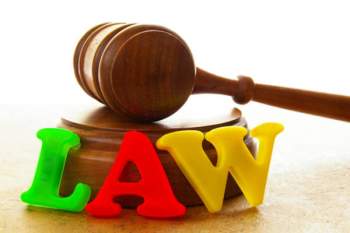
Utah Expungement Laws

Expunged records in Utah are sealed and blocked from public viewing. Someone whose record has been expunged can legally deny any involvement in criminal activity relating to the expunged record. Certain circumstances may require someone to admit to involvement in an action pertaining to the expunged record, such as in a court proceeding. Expunged records do not disappear under Utah expungement laws. The Criminal Investigations and Technical Services Division permanently keeps all index references, arrests and convictions on file. This information kept on file is not accessible to the public if it has been expunged.
Despite a Utah expungement, a record may be accessed and used concerning :
Future sentencing.
A firearms application.
A parole board.
State and professional licensing boards.
Education boards
Who is Eligible for a Utah Expungement?
Adults seeking expungement must meet the following requirements:
At least thirty days have passes since an arrest.
There have been no additional arrests since the original arrest.
All charges have been dropped.
No charges have been filed within thirty days of being discharged.
No formal charges were filed upon release.
A person may file a petition to apply for expungement if:
They have no more than one felony or two Class A or B misdemeanor convictions.
The petitioner has been released from prison, probation or parole upon completion of those sentences.
All fines or restitution have been paid to the court or victim involved.
A person seeking a Utah expungement must receive the petition from the Eligibility for Expungment from the Utah State Bureau of Criminal Identification. Utah expungement laws may give the Utah State Bureau of Criminal Identification the right to deny someone a petition if the petitioner committed a:
Capital felony.
First degree murder.
Second degree forcible felony.
Automobile homicide.
Sexual act against a minor.
Crime in another State that was expunged but would be a felony in Utah.
Juveniles may seek Expungement if:
* The juvenile has reached age 18.
* One full year has passed since the juvenile has been released from the jurisdiction of the juvenile system.
Time Restrictions under Utah Expungement Laws
In order to apply for a Utah expungement, a person's sentence must be complete including probation. All fines must be paid. The amount of time that must pass before an expungement petition can be granted is:
Seven years after a felony charge.
Ten years after a misdemeanor conviction or felony conviction.
Five years after a Class A misdemeanor charge.
Three years under any other misdemeanor charge.
Six years if there are multiple Class C misdemeanors.
Twelve years if there are multiple Class B misdemeanors.
Fifteen years if there are multiple Class A misdemeanors.
Process for petitions under Utah Expungement Laws:
* Filing and completion of petition.
* Must serve the petition to the Department of Corrections and prosecuting attorney.
* The court may require a written evaluation from the Department of Corrections.
*A hearing will take place regarding the petition. The prosecuting attorney and written evaluation may play a role in the hearing.
* The court will then decide if the person should be granted a Utah expungement of records.
NEXT: Vermont Expungement Laws





















